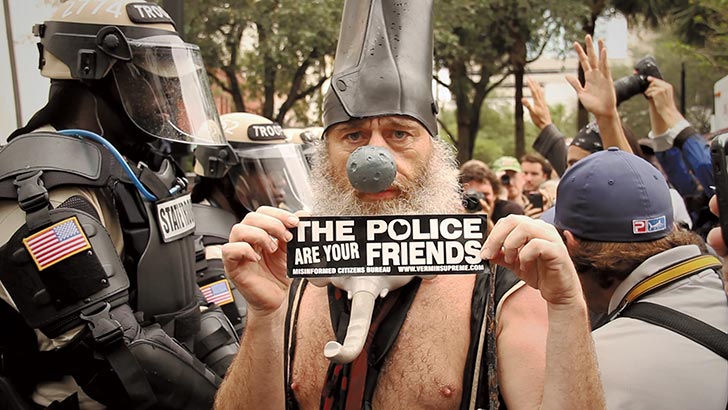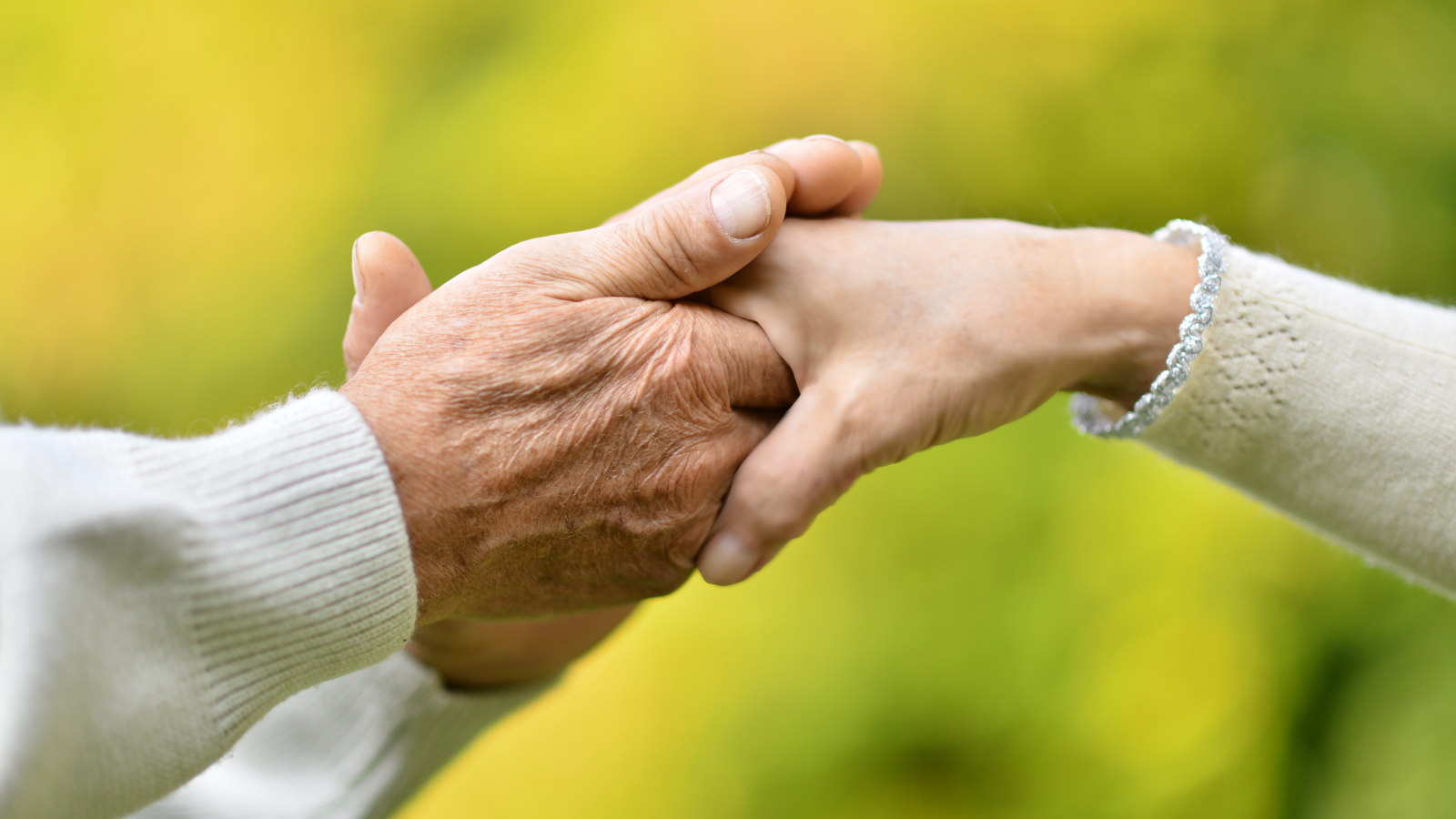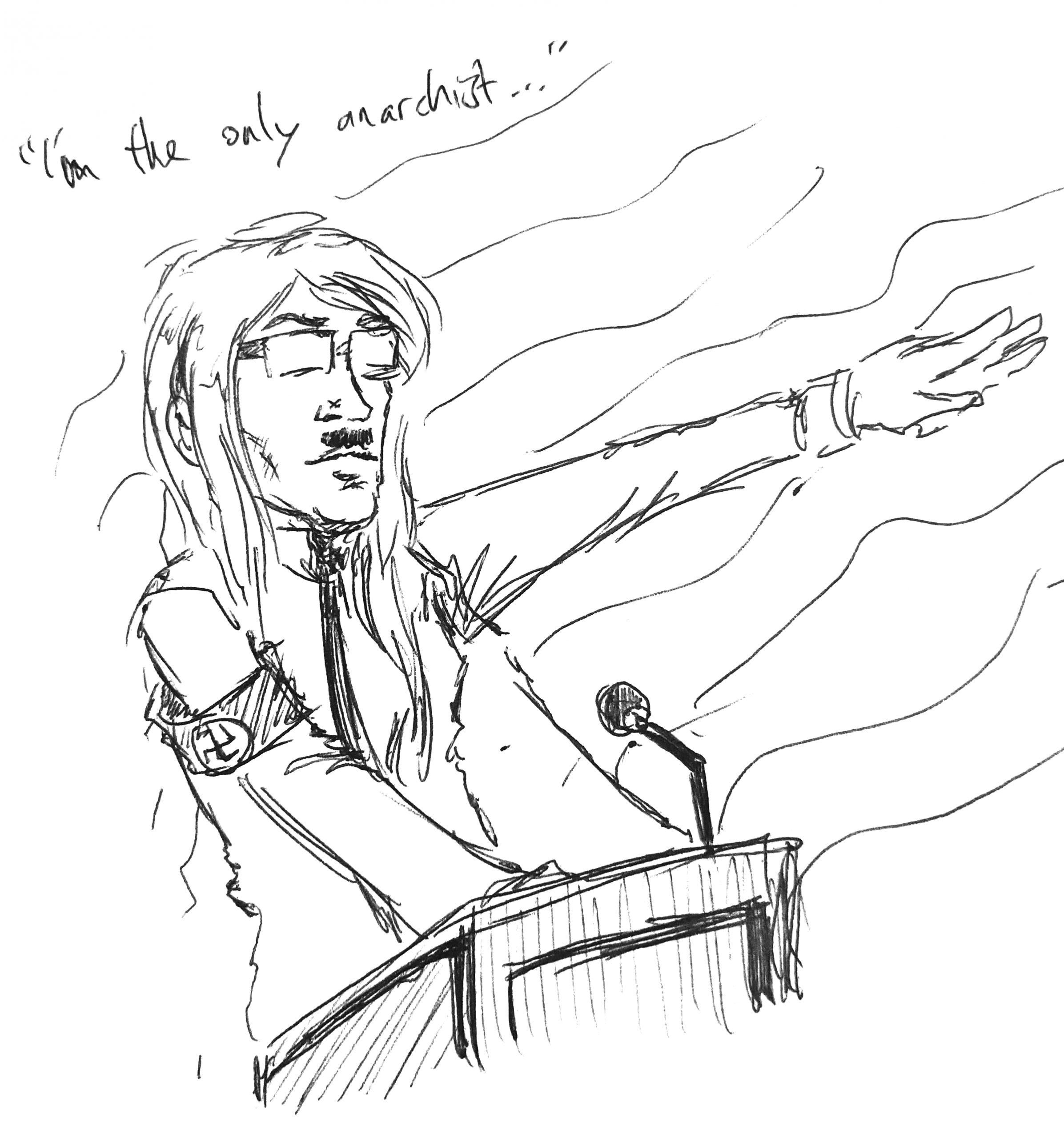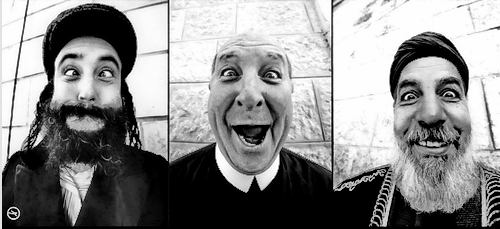Answer this won’t you please: Is it worth involving oneself in a political party? Is there more moral hazard in voting, or in not voting?
These questions and their rhetorical cousins are ones I see a lot of in our freedom fighting dialogues and forum wars. Minarchism versus Anarchism was (and still is) the deepest factional divide in our movement as can be seen in many unfortunate events within nearly all of our corporeal organizations.
I think the whole thing is silly – as in completely ridiculous, destructive and divisive. We libertarians deserve to treat each other better – I mean it I like you guys a lot, as fellow libertarians, you are a special kinda awesome people and deserve the best.
For me the questions I pose lead to the question the definition of community, or if you prefer society. And for that I feel that there is a common ambiguous understanding of justice, and that our society overwhelmingly expects that there will be a common core of a legal system, means that there will be a government.
It is just inevitable for any future I can see for now we are going to have cops and courts and some level of fair representational government at our liberty loving best. It is a realization that has me resigned to smaller battles with the large one: Utopia. That for me, the beauty of utopia only capable of existing as an emergent state from those smaller wins anyway.
That fact, that anarchist utopia is no where near around the corner, makes me a “minarchist” and not an anarchist. I believe in the smallest possible government necessary to support its job. I also believe that the ONLY way we are going to get that minimum is to be constantly pressing for the pure ideal… Nature can provide the opposing force. I intend to fight for ultimate freedom as an ensign of what I perceive the highest form of civilization: Community and society without violence as social motivators within.
For that I feel a “responsibility” to myself, and to my family, fellows and friends to strive towards that goal. That means interfacing with government, and with the community on terms that allow influence. Therefore to fulfill my own moral obligations I MUST vote, and I MUST engage in social education. If I do not, I am a hypocrite and all my proselytizing about freedom and liberty could be no more than public self indulgence; a most unseemly thing don’t you think?
The Moral Hazard of Voting versus Not Voting
![By Jynus (talk · contribs) (File:Spain region template.svg) [CC-BY-SA-3.0 (http://creativecommons.org/licenses/by-sa/3.0)], via Wikimedia Commons](https://alivefreehappy.com/wp-content/uploads/2014/09/Spanish-general-election-map-1936.svg-.png)
8 comments
Leave a Reply
You must be logged in to post a comment.







I generally agree with the content of this post, but I don’t think being skeptical about the viability of anarchy makes you a minarchist. If you believe the state is inherently violent and humanity would be better off without it than that makes you an anarchist regardless if you think such a society will ever be achieved.
I think part of my struggle is with a pop culture definition of the “A” word… ok I will say it, “anarchist”… where people associate it with violence.
To declare myself an anarchist for the technical definition in some minds to adopt it also means adopting the pop culture definition in others. Instead of trying to first teach people a lesson in English, I would rather talk about philosophy. I admit to shying away from that. It is a definition I want to be as far from as I can.
I call myself a practicing philosopher and for that, at the “practical level” I have an operational philosophy that is as perfect a balance to the ideal philosophy as it interfaces with the world that I can manage.
I want to be able to truthfully talk to people about my social philosophy in terms of how we can live without organized violence directing us. I don’t want to be associated with the guys in Catalonia and other places in the early 20th Century that became the iconic bomb thrower.
I generally avoid using the word anarchist to describe myself internally and externally. “Minarchist,” as a word allows me to start a conversation about meaning, where the good stuff is; “Anarchist,” starts another one. For that I have developed a nice shtick.
When I declare my personal philosophy to others, my practiced line is, “I am a minarchist who believes zero just might be possible.”
It is as accurate as words can describe for where my heart and my mind are, and its good for sparking a session of dialectic… anarchist style.
From your point of view… does voting and engaging the electorate qualify as moral hazards?
I was expecting a different discussion. Moral hazard is the idea that if you have insurance you might not be as careful as you would be if your own money was at stake. I guess that covers government too, as everyone wants to send other people’s money.
I agree that the anarchism vs. minarchism discussion is mostly a waste of time until we get to a point where we could actually choose one or the other. In the meantime, we should all look for opportunities to increase cooperation and reduce coercion.
For me the interesting distinction is politics or something else? Faced with the war between the red team and the blue team, does it make more sense to try to disrupt all that with the metaphorical frontal assault on a heavily defended position, or to try to figure out an end run, something more like bitcoin. I am mostly convinced that voting is a waste of time, at least outside of a very few places. I have some sympathy for the idea that voting is immoral or counterproductive, but I’m not really convinced.
The problem with all that is I’d like to do something useful and positive toward reducing some of the stupidity being perpetrated by the U.S. Government, such as mass incarceration, foreign adventures, corporate welfare, etc. The closest thing to innovative political thinking has come from the Free State Project.
Matthew: this is a very interesting article and I’ m glad you posted it.
I’m keenly aware that I’m in the minority at LM as Im neither a minarchist, nor an anarchist, nor even a libertarian. I’m a conservative most of the time, a classic liberal others, and i just happen to be very liberty oriented. So take what i have to say in that vein: you’re not getting advice from one of the converted.
In my view politics is a means to an end and not the end in itself. And far too many equate the broad universe of politics with the fairly narrow world of electoral politics. Its sort of like judging the merits of all ethnic food by limiting it to a review of lasagne. Well, sometimes lasagne is good and sometimes it isn’t. And it sure isn’t the only thing to choose from.
In my view you definitely should be registered to vote because it puts you in the jury pool. Beyond that, whether you should vote or not is not a one size fits all proposition. I vote sometimes and i try to look at it from the perspective of whether doing so has some possibility of making a positive difference in my world. And it think thats really a twofold question: how diluted my vote will be and the quality of the candidates. In a Presidential race, your vote is so diluted amongst the millions of votes cast that it isnt going to matter. Unless the candidate Im looking at is just so outstanding that i would crawl over nails to support them, then it just isnt a useful expenditure of my time.
On the other hand, if its a local race where few people are likely to vote then it probably makes more sense to vote, but only if there is a good choice on the ballot. What I wont do is vote for a “lesser evil.” I’m not going to spend my valuable time trying to decide who sucks less and giving that candidate legitimacy. Thats a fools errand.
Then also keep in mind that voting may have nothing to do with politics. Who knows? Maybe the person working the polls is hot and you want to get a date. Hey, you can always cast a blank ballot.
Whether I vote or not, even if I am not registered, they will act using my name as their authority.
I tend to vote my heart, no lesser evil for me. I am glad to vote for someone regardless of their chances of being first over the goal. The way I see it, the first over the goal line rule set is too easy to manipulate it if I play the obvious game.
The lesser of evils game is only a phantasm. The perceived lesser loss is never really lesser, because the top two horses are a fixed match. If you are freedom oriented, you have not counted any wins in the last 100 years if you were involved in main stream politics. You can count wins for your team. You cannot count any social wins.
There have been social wins in the last 100 years. Taxes were cut, freedoms gained, fascist institutions rolled back. But I would challenge anyone to point to any significant lessening of government power since the new deal, that was not won by a group of insurgent activists.
To get change, you cannot be operating as a part of the control mechanism. Change is always an externally motivated event.
To wrap that around to my main point. If you believe in freedom as the best default for most of society, then you have to be feeling the need for change… if not, I feel you may want to check if your glasses aren’t a little rose tinted.
Therefore, if you have something that you are voting for, you should be voting as closely to your ideal as possible regardless of your prediction of win or loss. If you have nothing to vote for then the 2 horse race was made for you.
The system does allow a dark horse winner. They happen. The act of running on a idealistic platform allows an airing of the platform. One day, the expanse of the voting eligible populace, will actually vote and the landscape of this country could change overnight.
When the number of non-voters outnumber the number of voters, there is an instability in the market that one day will correct. I and others I talk with around the water cooler feel it trying to correct. We see the fancy hats in our halls of legislation passing election reforms that protect them with a frequency that looks like it is escalating. That means instability and a certain win for the minority with the best base of voters trained to ignore the “funny monkey” vote.
Winning never changes policy when you vote for a prewrapped candidate. But, if the runner up was third party… the winner starts changing policy. As a minority, when our guys make strong showings, the engineered plastic people candidates start adopting our policies… that is what those personalities are groomed and trained for.
In that effect i think that Ross Perot was more influential than any one in government for a decade in driving economic policy, and he lost twice with less than 20% each time and in third place everywhere. But for his “losses” both Clinton and the congress started taking all of his infomercial slide shows and turning them into policy.
Voting with your heart is not only a good idea for the principle of the thing… in practice, a third party vote is several times as loud, in effect, than any of those in the pool of the entrenched parties’ voters. When you vote third party, it means something.
“There have been social wins in the last 100 years. Taxes were cut, freedoms gained, fascist institutions rolled back. But I would challenge anyone to point to any significant lessening of government power since the new deal, that was not won by a group of insurgent activists.”
I officially request a new article explaining and expanding this comment. Has there been “any significant lessening of government power” period, ever, since 1776? Abolition, the progressive era, the new deal, civil rights, women’s lib, etc. all got co-opted by government so that bureaucrats could expand their fiefdoms. This is why real libertarianism can never win via politics, because no one gains power by empowering ordinary people.
Dave I hear your request and I will give it some thought. I think that I would have to talk about moments of win, and moments of loss.
One example of lessened power that I can pull out of my hat right now is that the feds are not issuing ration cards for sugar and gasoline; though they do still have the power to… yeah I am going to have to do some research!
Voting or not voting is a personal choice. If one votes, or refuses to vote, based on some moral justification, their holiness should extend no further than their own conscience. By that I mean one cannot resolve the question of the morality of voting for others, only for oneself. Voting (or not voting) in mass elections is another species of victimless harm. Whatever harm flows from the choice is so attenuated at the level of the individual voter that liability cannot be assigned. More exactly, the decision of whether or not to participate in a neutral ritual act is merely a preference.
In tiny elections the calculus might seem to be different. But even here, an election itself is morally neutral. It is just counting. It’s what people do in response to elections that matters. If Bob and Sue vote that Matt should steal Joe’s property, absent some act making them co-conspirators or accessories, Bob and Sue don’t become morally responsible for Matt’s theft merely by having held an election on the matter. If Jesus refuses to participate in the election of Sue and Bob, and Lucifer casts a principled “no” vote, it is even harder to judge one holier than the other. Is Lucifer the greater sinner for having “validated the legitimacy” of the election? Or did Jesus commit the greater err by abstaining, when by casting a “no” vote he could have removed Matt’s excuse for thieving? If you think there is only one right answer to the question of who among Jesus and Lucifer was the greater sinner, you are missing the point. Elections, like other rituals (even those that involve lots of arithmetic), cannot determine morality, or excuse immorality.
Again, voting or not is merely a personal preference. At one time in my life, I did not vote at all. Later, I dutifully filled in every bubble (in hindsight, that seems silly). Now, I vote against most propositions and cast the occasional protest vote, and more rarely, cast a strategic vote for a lesser evil. But the ballot I turn in is mostly blank. None of these different choices have any moral consequence. The different choices might have different political consequences, but at my individual level, extremely attenuated ones.
But do not fail to speak against evil, when there is an ear around that might hear your complaint and be able to help prevent it. Such a failure WOULD truly be evil.